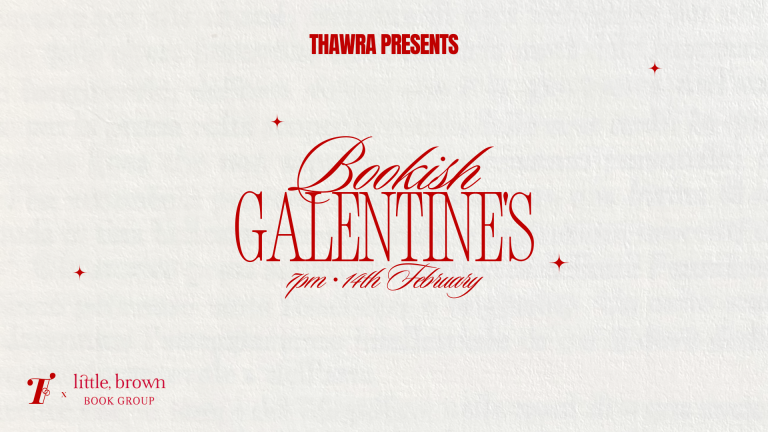Read an extract from The Coming of the Wolf by Elizabeth Chadwick

1
Manor of Ashdyke, Welsh Marches, August 1069
Lying in bed, Christen listened to the birdsong. The rippling sequence of a thrush, two blackbirds in competitive harmony, the bold chirping of sparrows, and the raucous cawing from the rook colony in the ash trees beyond the stockade.
Grey daylight poked through the gaps in the shutters and stole across the skins on the bed to touch the bare shoulder of the sleeping man at her side. She turned her head to look at him. The muted light was kind to his years, gentling the lighter wrinkles and smoothing the crêpey skin on his throat and arms. Since the arrival of the Normans, three years ago, Lyulph had lost his prime and become an old man lacking the spark and vigour that had kept him vital and strong even though he was well past his fiftieth winter.
In the days before the Normans, in the time of King Edward, Lyulph would have been busy husbanding these estates from the first streak of dawn until the last quench of sunset. In his moments of leisure he would have been out hunting, or exercising his weapon skills. In the evening he would have presided over the household in the great hall, dispensing food and drink to the dependants at their board, making toasts with his silver-chased drinking horn, while taking shrewd note of everyone and everything. As strong as an ox, but never bovine. And kind, she thought, swallowing grief at what he had become.
It was so difficult for Lyulph now. He had travelled north with King Harold Godwinson to face the invasion forces of Hardrada of Norway and had been badly wounded in the great battle at Stamford. He had been unable to march back down the country with Harold to face the new threat from William of Normandy. Instead, he had spent the day of the second great battle for England’s throne burning with fever from an infected gash in his thigh. The wound, a stab from a Norse spear, had saved his lands and his family. Christen often thought that for Lyulph it would have been a mercy had he died in Harold’s shield wall at Hastings, rather than surviving to swear his allegiance to King William and live each day ravaged by guilt and bitterness.
The birdsong was growing more insistent and the grey light brightening with gold. Lyulph slept on, his breath fluttering through his thick silver moustaches. Christen slipped from his side, drew the bed covers back over him and silently donned her gown and chemise. She combed and braided her heavy flaxen hair and with deft fingers pinned it up and donned her wimple, covering her head as a decent married woman should. Sitting down on a low stool to put on her shoes, she glanced again at her sleeping husband with a mingling of worry and sadness.
They had been married for five years and she had recently entered her twentieth summer. Lyulph was thirty years her senior. Her land and her marriage had been in King Edward’s gift – she had become the King’s ward when her father died and Edward had bestowed her on Lyulph who had been a fit and powerful warrior, capable of defending her lands on the troublesome border between England and Wales. She had never thought of Lyulph as an old man in the early days, but rather as a solid bulwark and protector. A man of gravitas, strong and dependable, with a ready laugh, who treated her with kindness and a little indulgence. Her situation in an arranged marriage could have been so much worse and she was grateful.
She had conceived twice. The first pregnancy had ended in a miscarriage before the baby had quickened; the other had resulted in a still-born daughter in the year the Normans came and the week before Lyulph set out to war. They had not lain together as man and wife since. He said he would not bring a child into a land suffering under the yoke of rapacious wolves, chief among them their close neighbour William FitzOsbern, Earl of Hereford, a powerful Norman warlord and the scourge of the area. He was William the Bastard’s kin and one of his chief advisers.
Christen tip-toed from their bedchamber and entered the adjoining hall. A yawning maidservant was poking the fire to life under the cauldron at the central hearth and the hall’s other occupants, roused from slumber, were rolling up their sleeping pallets and preparing to face the day. Christen went out into the yard. Two women were drawing water at the well and a third was washing her face and hands in a bucket of water. A mouthwatering smell of baking loaves wafted from the bread oven next to the hall, making her stomach clench with hunger. In the dairy, the women were churning butter and making curd cheese to serve at the breaking of fast. She paused to supervise, saw that all was as it should be, and continued on her way.
It was pleasantly cool now, but bid fair to be a hot end-of-summer day once the sun had gained height – ideal for dyeing the skeins of wool spun from the manor’s flock of sheep at shearing time and now awaiting her attention. The yarn would set and dry swiftly in the warm air. She entered the storage hut where the dye vats were kept. On two rows of shelves stood neatly arranged jars and bags of mordants and dyes – madder root for red, weld for yellow, and balls of dried woad for blue. Less of the woad, because it was expensive and she kept a shrewd, housewife’s eye on the purse strings. There was less to go round since the Normans had come.
A movement in the shadows touched the corner of her eye, but before she could turn, a hard arm clamped around her waist, and she was lifted from the ground and spun into a lung-constricting bear-hug. Crying out with what breath had not been squeezed from her body, she strove to break free.
‘Christen, it’s all right, it’s me!’ A whiskery face loomed over hers and planted a rough kiss on her cheek.
‘Osric!’ She stared in shock and not a little dismay at the brother she had not seen since the rebels had raided Hereford last year. ‘Dear God, what are you doing here?’ The rings of his mail shirt imprinted the flesh of her cheek, and the hard edge of a sword pommel jutted against her ribs. Recovering, she pushed herself out of his arms, and glared at him, knowing of old that his great, solid body was the only dependable thing about Osric.
‘Don’t look at me like that.’ He gave a tense laugh and dug one hand through his thick, fair hair.
‘How should I look at you?’ she snapped. ‘A year passes without news, and then you leap on me out of nowhere, squash me half to death, and expect me to be overjoyed. Are you still with the rebels?’ Even as she asked the question she knew the answer. He had fought on Hastings field but had survived by fleeing from the final slaughter. The fight was not over for him, and would never be. He dropped his hand. ‘The free English,’ he said stiffly.
Unimpressed, she folded her arms.
Osric opened his mouth to remonstrate, but changed his mind and gave her an imploring look from wide hazel eyes. ‘I need your help,’ he said.
Christen wanted to throttle him. Wherever Osric went, mayhem invariably followed, and his schemes were always detrimental to anyone foolish enough to become caught up in them. It had been that way ever since childhood. She made a brusque gesture, devoid of welcome. ‘You had better come to the hall and break your fast. Lyulph is still abed. I . . . who are they?’ Her gaze shot to six men gathered furtively near the stable enclosure.
Osric shrugged and affected nonchalance. ‘My warband. We are on our way to rejoin Eadric Cild west of here.’
Eadric Cild, as Christen well knew, was an English rebel, determined to oppose Norman rule to the last, bitter drop of blood. After an unsuccessful attempt to take Hereford from the Normans, he had retreated over the border into Wales, and no one was ever certain where he would strike next. Neither he nor William FitzOsbern cared what they destroyed if it stood in their way.
‘Well, keep them away from our horses,’ she snapped. ‘God knows, Lyulph has had trouble enough keeping them out of FitzOsbern’s grasp without you seeking to “borrow” them from us.’
‘Christen!’ Osric gave her a look drenched in reproach.
‘I have grown up,’ she said wearily, ‘and Lyulph has grown old before his time. We are beyond riding on the back of glory into death. You may bring them into the hall for food and drink, but you cannot stay here or use us for your refuge. I will go and rouse my husband.’
Lips pursed, Christen served her menfolk with bread, curd cheese and new ale.
‘So you go into Wales to rejoin Eadric Cild?’ Lyulph studied his brother-in-law from faded blue eyes.
Osric broke a crust of bread, pushed it into his mouth, and spoke around it. ‘If we can break through the Norman net, yes. It should not be difficult; we have already shaken off one band who were on our tail.’
‘Then you are hunted?’ Lyulph raised his brows.
Osric hunched his shoulders defensively. ‘We lost them in the forest last night. You know I would not bring danger down on your heads.’
‘I know no such thing,’ Lyulph said. ‘Your very presence here puts us in peril.’
Osric swilled down the bread with a gulp of ale. ‘They weren’t a large troop. We would have turned and fought, but they had horses and we were on foot. It was easier to use the dark to slip away. We won’t stay here long, I promise.’
Christen glanced apprehensively at Lyulph. He met her gaze steadily, but his mouth was down-turned and grim. Osric’s pursuers could not be far away unless they had given up the chase and turned back.
‘I am glad to hear it,’ Lyulph said, and gestured Christen to leave them to talk.
She went outside to supervise the dye tub and to tell the kitchen servants to prepare extra food for the midday meal. She knew exactly how it would go between Lyulph and her brother. Osric would ask for spears, axes and horses to take them into Wales and Lyulph would agree in order to have them gone from Ashdyke. Exacting tribute, she thought with tight lips. Why couldn’t Osric leave them alone? They had enough to contend with already.
She was stooping over a vat of stewing madder root, skeins of wool at the ready, when Lyulph emerged from the hall to speak to her, his gait heavily favouring the wounded leg. As a sop to his pride in the presence of her brother, he was not using his stick but she could see he was struggling. ‘Set seven more places at our table,’ he said gruffly, ‘and serve dinner early. Osric will ride out afterwards.’
‘Ride?’ She stepped aside to let a woman empty another pail of water into the bubbling cauldron. ‘We cannot spare the horses, you know we cannot.’
Lyulph’s mouth hardened. ‘He is kin. We are obliged.’
‘Precisely the reason he is here. He knows we are obliged.’
‘They cannot win,’ he said heavily. ‘There is no one left of King Harold’s mettle lest it be William of Normandy, and him we already have whether we like it or not.’ He rubbed his palm across his face. ‘Your brother will not listen, but then at his age I would have been the same. Indeed, far more recently than my youth I would have joined him and gone to the rebels because he is weaving his fate and not sitting with empty hands and a broken body at the loom of his life.’
Impulsively she reached up to stroke his silver beard and smiled at him with concerned, sad affection. ‘I am not sure Osric’s weaving will ever prove fruitful,’ she said. ‘I would not have you follow my brother’s road.’
‘And at his age I would have been of more use to a pretty young wife,’ Lyulph said with a rueful grimace, and his eyes clouded with pain.
Swiftly she covered his lips with her palm. ‘I will not hear you say such words. I am content, my lord.’ He took her hand and lowered it from his mouth. ‘Are you?’ He searched her face.
‘Yes.’ Christen’s throat tightened. She would give him the part that was truth and avoid the other. ‘You are a good and considerate husband. Had King Edward bestowed me on one of his young warriors, there is no certainty that my life would have been any more fulfilled. He would not have had your wisdom and patience.’
He sighed and shook his head. ‘Those are not always the traits that a young woman would put above others.’
‘This one does!’ Christen said stoutly. ‘I thank God every day that King Edward did not give me in marriage to such a one as my brother.’
‘I see your point,’ he said with pained amusement and leaned forward to kiss her cheek before limping away to the stables to order the release of the horses they could ill afford to lose. Christen watched his laboured progress, a cold hand squeezing her heart. His step held a heavy finality – not of defeat, but of weary endurance.
Her eyes became dry with staring and began to smart. Abruptly she returned her attention to the dye tub. The sooner Osric left, the better. He had been reckless before the slaughter at Hastings, but since the battle, the recklessness had changed and become a dark and dangerous bitterness within him.
They were seated at the long table in the hall, Osric waving a chicken leg around on the point of his knife and regaling them with an exaggerated tale of his deeds among the ‘free English’, when the Normans hit them in the summer noon like a bolt of lightning. One moment Christen was directing a servant to refill Lyulph’s cup, the next there was a golden splash of ale across the trestle and down her skirt as the men leaped up in answer to a terrified shriek of warning. Lyulph rose and made an awkward turn to grab his battleaxe off the wall behind his chair and stepped in front of Christen to defend her, shouting orders to his startled retainers.
There seemed to be hundreds of attackers, although Christen later learned there were no more than twenty, but enough to overcome a small English community that had lost its best fighting men in the north against Hardrada. Osric was neither a martyr nor, for all his boasting, the stuff of which great leaders and heroes were made. As the Normans poured into the hall, he leaped over the trestle, seized a burning brand from the hearth and set light to the rushes carpeting the floor. As smoke and stench arose amid small soft teeth of flame, he ran to the window at the side of the dais and scrambled through the aperture, his so-called warband deserting in his wake.
Coughing, Christen drew her veil across her nose and mouth.
‘Go, get out!’ Lyulph shouted at her. ‘Run to the woods and hide until I come for you!’
‘I’ll not leave you!’ she answered fiercely, then coughed so hard into the linen that she retched and could only see him through a stinging blur.
‘There is no time to argue, do as I say!’ He gave her a vigorous shove.
Christen stumbled on her gown, righted herself, stared down the hall with smoke-torn eyes at the mail-clad figures striding through Osric’s flimsy barrier of smoke and fire, then fled.
In their bedchamber, she grabbed her cloak, stuffed her jewellery into a cloth bag and ran to the window, then recoiled with a scream as a Norman soldier straddled the sill. The man leaped down into the room and advanced on her, his sword raised, light gleaming along the blade. Outside someone screamed in English and was answered by an exultant bellow in Norman French. Christen backed away from the man, in terror, her knees almost buckling.
The Norman advanced on her, lips parted in anticipation. Christen hurled the cloth bag at him and he caught it with a laugh, and then whirled as Lyulph staggered into the room, his axe blade dyed crimson, dark trickles running down the haft and staining his hands. Roaring with rage, Lyulph launched himself on the Norman and, in the heat and desperation of the moment, fought as he had fought at Stamford. Christen felt wet heat spray her face before her attacker fell at her feet, his jawbone shorn from his body.
She screamed and ran to Lyulph. He held her hard for the space of a heartbeat before spinning her round and bundling her towards the window, pausing only to snatch her jewels from his victim’s still-twitching hand and tie the string through her belt. ‘We were betrayed,’ he panted. ‘Gyrth the blacksmith sought the Normans and told them we were harbouring rebels, and opened the gates for them. Can you reach? Quickly now.’
He lifted her, fingers digging painfully into her hips, finding the strength out of desperation. Christen did not need to ask why Gyrth had gone to the invaders. They were the ones with the good horses and the custom these days, and they paid hard silver for information. Gyrth had been sullen ever since Lyulph had dealt him a fine for drunken brawling last month.
‘Meet me at the Hundred oak,’ Lyulph said as she gained the sill. ‘If I do not come, make for the nunnery at—’
Christen screamed a warning and Lyulph whirled, the axe already swinging through its bright arc. The Norman howled as the blade sheared through his shield as though it were made of butter, and opened his leg to the bone. Lyulph tried to balance himself to strike again, but his leg gave way and a second Norman following on the heels of the first took advantage and struck Lyulph in the side, the sword biting deeply into his flesh.
Still grasping his axe, Lyulph stared incredulously at the blood saturating his tunic. He twisted towards the window, to Christen, but no words came from his mouth, only an eruption of blood, and the Norman struck him again as he fell.
The first soldier threshed about on the floor, screaming in terror and agony as his life bled away. As his companion turned to help him him, Christen swung her other leg over the sill and dropped to the ground. The landing winded her and sent pain jolting through her ankles and knees, but she was not injured. Dry-sobbing with fear and shock, she stared round, her fingers tightly gripping the drawstring cord of the jewel bag.
The hall was ablaze, the timbers having dried out in the long summer days, and the Normans were doing nothing to douse the flames. She saw the sprawled bodies of Lyulph’s men and the male servants, cut down as they fled, and others, running for their lives, but being caught and slaughtered. Her people, and she could do nothing for them, and there was no escape. Everything was fire and blood and harsh, triumphant voices exulting in French. And Lyulph . . . Lyulph was dead.
A troop of horsemen entered through the open gates and thundered across the compound, straight towards her. The lead stallion was upon her so quickly that she was flung from its broad, dappled shoulder like a child’s straw doll. Sprawled face-down in the dirt several yards away, dazed and barely conscious, she was aware of the roar of flames and the vibration of hooves on the ground against her cheek. The screams and pleas, the butchery, the roars of triumph, and excited laughter.
She lay very still, not daring to move, praying to God and the Holy Virgin for mercy and succour against the minions of Hell.







